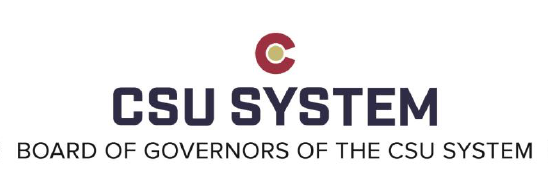
Non-resident students at Colorado State University will see a 30% cut in tuition during Summer 2021 in a move the CSU System Board of Governors approved at its February meeting.
The one-term tuition reduction aims to help non-resident students stay consistently engaged with CSU and to reduce their time to graduation.
Since 2014, CSU has been working to increase summer session enrollment by using discounts and scholarships to reduce the cost for non-resident students. The new rate reduction will simplify and clarify the tuition non-resident students can expect to pay this summer.
The reduction will lower the per-credit cost $422, from $1,407 down to $985. Non-resident students enrolled in summer classes earning 12-20 credits will see their tuition drop about $4,222, down to $9,851 from the previous full cost of $14,073.
CSU Summer Session 2021 will be more affordable and flexible for undergraduates
During the bimonthly meeting, which took place online Feb. 5 and is available for viewing on the CSU System website, the Board of Governors also heard from representatives of the three campuses that make up the CSU System – CSU Fort Collins, CSU Pueblo and CSU Global.
Courageous Strategic Transformation progress
More members of CSU Fort Collins community will soon have opportunities to provide input on the Courageous Strategic Transformation that leaders across campus have been shaping, based on ongoing input President Joyce McConnell sought upon her arrival in 2018. In her report to the Board, McConnell said faculty, staff and students will be invited to participate in the process later in the spring semester, and that she has hired a Vice President for Strategy, Jenelle Beavers, who will help lead the effort in the newly created role.
The President’s Report also included these and other items:
- Undergraduate applications are up about 5% over last year, while deposits are down, as some prospective students appear to be watching trends of the pandemic before committing to an institution. The Admissions Office continues refining use of newer types of outreach such as video chats and virtual tours.
- Spring semester will transition to Phase III on Feb. 15, moving all courses to their intended delivery (in-person, hybrid or online) as the university expands COVID-19 screening capacity to accommodate mandatory screening for certain groups.
- The university held two “Spring 2021 at CSU” town halls in January as the semester began, to provide updates to the CSU community and answer questions.
Other highlights
Budget forecasting for next year – The Board of Governors is keeping a close eye on state legislature funding for higher education, with Colorado Gov. Jared Polis proposing a return to FY 2019-20 funding levels and allowing a 3% tuition rate increase. By June, the board aims to have $80 million in the System’s Coronavirus Emergency Response Fund after a transfer of reserve funds and savings from refinancing System bonds.
Chancellor Tony Frank explained that a significant unknown is what level of COVID-19 relief will come to the state from a possible fourth round of federal assistance. Because of the evolving funding levels, the board anticipates making final budget decisions in June rather than in May, as it did last year, to have the clearest possible picture of funding levels and the course of the pandemic and its potential impact on the fall semester.
Voting voice for Non-Tenure Track Faculty – The board approved a change to the CSU Faculty Manual adding “contract and continuing faculty members” to those proportionally represented on Faculty Council and allowing faculty not on a track to earn tenure to represent their colleges.
Previously, tenure-track and tenured faculty were proportionally represented, while about 770 non-tenure track faculty were represented by one representative from each of CSU’s eight colleges provided by the Committee on Non-Tenure Track Faculty.
The resolution presented in a written report from Provost Mary Pedersen included the following: “Our non-tenure track faculty members provide significant contributions to teaching, research, and extension, fulfilling state curricula, providing the best possible activities, and ensuring students can learn and develop according to their individual interests and aptitudes. However, these faculty members perform these duties and meet these goals of Faculty Council without adequate representation in our Faculty Council body.”
The Chair of the Board of Governors, Nancy Tuor, recognized the multi-year effort and congratulated those on campus who worked together to make an important change.
Spur campus progress – CSU will be “topping out” the final steel beam on the Vida building at CSU Spur the week of Feb. 18.
New faculty representative – Melinda Smith was introduced as the new faculty representative to the Board of Governors, filling the seat vacated by the retirement of Stephanie Clemons. Smith is a professor of ecology and evolutionary biology in the College of Natural Sciences. Sue Doe, chair of Faculty Council, provided a written report highlighting the work of six task force groups and the successful work to increase non-tenure track faculty representation on Faculty Council.
Student representative report – ASCSU President Hannah Taylor announced the launch of a new student government internship program; shared information about a new mentorship program that will pair first generation and transfer students with mentors; and described ongoing efforts to work with the City of Fort Collins to increase off-campus housing availability by addressing concerns about You+2 restrictions.
Information about all meetings of the CSU Board of Governors is on the CSU System website. Final meeting materials are typically posted within a week of each meeting.